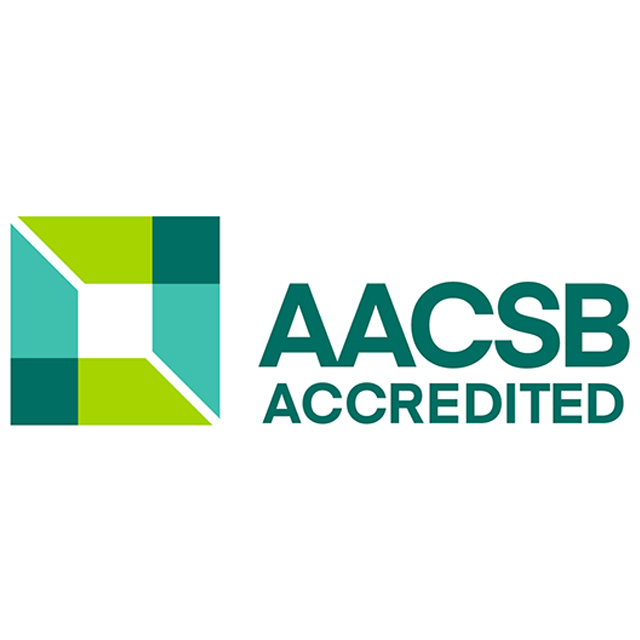Become a Difference Maker
At Duquesne, you’ll be part of the next generation of business leaders who will make a difference in our world. Our experienced professors offer real-world knowledge and support, ensuring you learn the skills needed to succeed in today’s fast-changing business world.
Your Dreams are within Reach
Outcomes Matter. They reflect the real value of your Duquesne education. For our graduates, strong outcomes—such as landing your dream job at a Fortune 500 company or Big Four accounting firm, earning a competitive salary, or gaining admission to a top graduate program—demonstrate the impact of your hard work and investment
Our professionally-focused majors, minors, and certificates prepare you for success. Built on a foundation of core business skills, you will embark on a experiential educational journey that is designed for help you achieve your Bigger Goals.
Cornerstone to Capstone model
Our project-based curriculum is designed to help you learn by doing from your very first semester to your final capstone. You’ll work alongside industry professionals, gaining invaluable hands-on experience every step of the way. From our First-Year Innovation Experience to course projects to your senior-year capstone projects, we proudly partner with corporations, non-profits, and other organizations that bring real-world challenges to the classroom, giving our students a chance to understand the complex and ever-changing business landscape before they land their first job.
Contact Ariana Williams, Program Director, Recruitment & Student Success to schedule a tour
or information session to learn more about the Palumbo-Donahue School of Business.
Sample Graduation Plan
Overview
All students must complete a minimum of 120 credits.
Bridges Requirements: 19 credits of University-wide courses taken by all students.
Business Core: 51 credits plus 3 additional credits of required courses. Business Core courses provide
a well-rounded education in all functional areas of business and are taken by all
undergraduate business students.
Business Major Requirements: Courses specific to your chosen major and includes a mix of major classes and electives.
Open Electives: Choose your electives for a double major, minor, or just for fun!
First Year
Fall Semester
BRDG 100—Research & Info Skills
BRDG—Writing & Analysis
BUAD 103/103L—Innovation Experience
BUAD 111—Business Math
COMM 202W—Business & Professional Comm
ISYS 184—Business Information Systems
Spring Semester
BRDG—Writing & Literature
BUAD 110—Internship Prep Practicum
ISYS 284—Data for Decision Making
MKTG 271—Marketing & Business Development
SCMG 267—Supply Chain Operations
STAT 285—Business Statistics
Sophomore Year
Fall Semester
ACCT 214—Financial Accounting
BUAD 210—Career Prep Practicum
EQ XXX—Essential Questions Seminar
MGMT 261—Management & Organizational Behavior
MGMT 262—Global Insights
Theology Requirement
Spring Semester
ACCT 215—Managerial Accounting
BLAW 251—Business Law
BRDG 105H/P/T—Intro to Ethical Reasoning
ECON 201—Principles of Microeconomics
FINC 313—Business Finance
Junior Year
Fall Semester
ECON 202—Principles of Macroeconomics
Major Required Course
Major Required Course
Open Elective
Open Elective
Spring Semester
Major Required Course
Major Required Course
Open Elective
Open Elective
Philosophy Requirement
Senior
Fall Semester
Major Required Course
Major Required Course
MGMT 368W—Business Ethics & Global Citizenship
Open Elective
Open Elective
Spring Semester
Major Required Course
Major Elective
MGMT 499W—Strategic Management
Open Elective
Open Elective
A strong range of professionally-focused majors provides the flexibility and marketable
skills needed to achieve your career potential. Majors include Accounting, Business
Analytics Co-Major (STEM), Economics (STEM), Entrepreneurship and Innovation, Finance
(STEM), Information Systems and Technology (STEM), Management, Marketing, Supply Chain
Management (STEM), and Discover Business - Undecided. A business minor gives you a competitive edge when applying for specific jobs by providing
concepts, tools, and skills that enhance your career progress. Certificate programs are available to students pursuing majors inside and outside
of the Palumbo-Donahue School of Business. Students from a wide range of majors who
wish to pursue a business-related career within their discipline can benefit from
a business certificate. Certificate in Actuarial Science: Composed of courses from the School of Science and Engineering and the School of
Business, the certificate can be fully accessed after completing fourteen credits
of prerequisite coursework. (18 credits) Certificate in International Business: Courses can be double-counted toward the business core and, in many cases, towards
required major courses. Many business students earn the certificate with as few as
two to three additional courses. (15 credits) Certificate in Quantitative Finance: Develop a skill set and deep knowledge of mathematics, computer science, probability,
statistics, and their applications to finance. (32 credits) These certificate programs are only available to non-business majors. Certificate in Entrepreneurship: Aligns with students majoring in music, arts, computer science, pharmacy, and health
sciences who may want to start a business or develop new business lines within existing
firms. (15 credits) Certificate in Professional Selling: Available to students who wish to pursue a sales-related career or business development
role within their discipline. Examples include careers in pharmaceutical sales, business
consulting, entertainment industry sales, technical sales, and even recruiting. (15 credits)Majors
Minors
A business minor requires students to take four courses (12 credits) in a specific discipline. The minor is designed to give students from other majors
within the Business School a general competency in another study area. Students are encouraged to meet with their Student Success Coach for specific information.
Minors are only available to business students. Non-business students are encouraged to explore the certificate options below.
Minors are available in Accounting, Digital Marketing & Analytics, Economics, Entrepreneurship
and Innovation, Finance, Financial Planning, Information Systems and Technology, Legal
Studies, Management, Professional Sales, Real Estate, Sports Marketing, and Supply
Chain Management.
Check out the above major pages for more information and minor requirements. Students
can choose more than one minor.
Certificates
Certificates Available to All Majors
Available to Non-Business Majors
Certificate in Business Management: Available to students outside of the School of Business who wish to enhance their
degree with business skills. Examples include careers in the music industry, health
care, pharmaceutical sales, and entrepreneurship. (18 credits)
Contact
Ariana Williams

Student Support
From your first day at Duquesne, the faculty and staff of the School of Business are here to guide you as you navigate coursework, career counseling, student life, and more.

Eugene P. Beard Center for Student Success
The Beard Center for Student Success is pivotal in our students' journey. By offering personalized advice and encouragement, our Success Coaches act as trusted guides, helping students excel academically, explore and decide on majors and minors, secure valuable internships, and more.

Center for Career Development
Business students are focused on launching an exciting career, not just landing a job. The University's Center for Career Development poises students for success. The Center provides career prep programs tailored to each student's needs while fostering key relationships with potential employers. It also offers career coaching via one-on-one sessions with the School of Business Career Consultant.
Accreditation
The Association to Advance Collegiate Schools of Business (AACSB) awarded Duquesne's undergraduate and graduate Schools of Business its full accreditation. The AACSB accreditation is recognized as a global mark of distinction. Less than 6 percent of the world's more than 1,200 business schools have passed the rigorous review necessary to earn the honor.
Cultural Intelligence
Learning Outcomes
Learners will have the disciplinary business knowledge to utilize foundational theories
and frameworks to evaluate business situations.
Analytical and Critical Business Thinking
Learners will demonstrate an ability to analyze complex situations and information
to evaluate alternatives and develop innovative solutions for business problems.
Learners will possess an understanding of cultural differences in order to operate
effectively in a global business environment.
Ethical and Moral Compass
Learners will be able to recognize ethical dilemmas in an organizational context and
apply ethical decision-making frameworks to business decisions.
Influence and Collaboration
Learners will possess the leadership skills for motivating people and creating positive
organizational change.
















